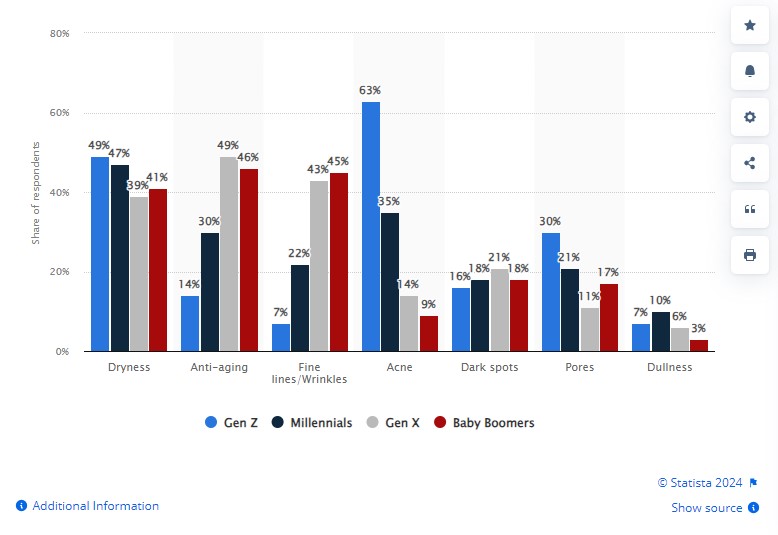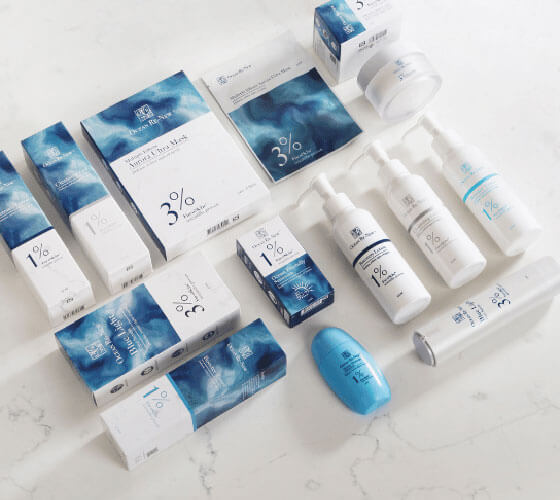Understanding Skin Concerns Across Generations: Insights for Skincare Brands

In the ever-evolving world of skincare, understanding the unique concerns of different generations is crucial for brands aiming to cater to diverse consumer needs. A 2022 survey conducted in the United States sheds light on the most common skin concerns among skincare shoppers from various generational cohorts. This data not only highlights the distinct priorities of each age group but also provides valuable insights for product development and marketing strategies.
Generation Z (Born 1997-2012)
For Generation Z, acne is the predominant skin concern. This is not surprising, given that many individuals in this age group are navigating the challenges of adolescence and early adulthood, where hormonal changes often lead to breakouts. In addition to acne, Gen Z also prioritizes addressing dryness and pore-related issues. Skincare brands targeting this demographic should focus on products that offer effective acne treatment, hydration, and pore minimization.
Millennials (Born 1981-1996)
Millennials, who are now in their late 20s to early 40s, primarily focus on combating dryness and acne. As this generation balances busy professional and personal lives, they seek skincare solutions that provide hydration and maintain clear skin. Products that offer multi-functional benefits, such as moisturizers with acne-fighting ingredients, are likely to resonate well with millennial consumers.
-

Image from: © Statista 2024
Implications for Skincare Brands
These generational insights highlight the importance of tailored skincare solutions. By understanding the specific concerns of each age group, brands can develop targeted products and marketing campaigns that resonate with their audience. For instance, emphasizing acne treatment and pore care for Gen Z, hydration and multi-functional products for Millennials, anti-aging and hydration for Gen X, and intensive moisture and wrinkle reduction for Baby Boomers can help brands effectively meet the needs of their consumers.In conclusion, the skincare industry must continuously adapt to the evolving preferences and concerns of different generations. By leveraging data-driven insights, brands can create products that not only address the unique needs of each age group but also foster long-term customer loyalty.



